Walden, Revisited
For a century, it’s been a camp for (mostly) Jewish girls—but not a Jewish camp
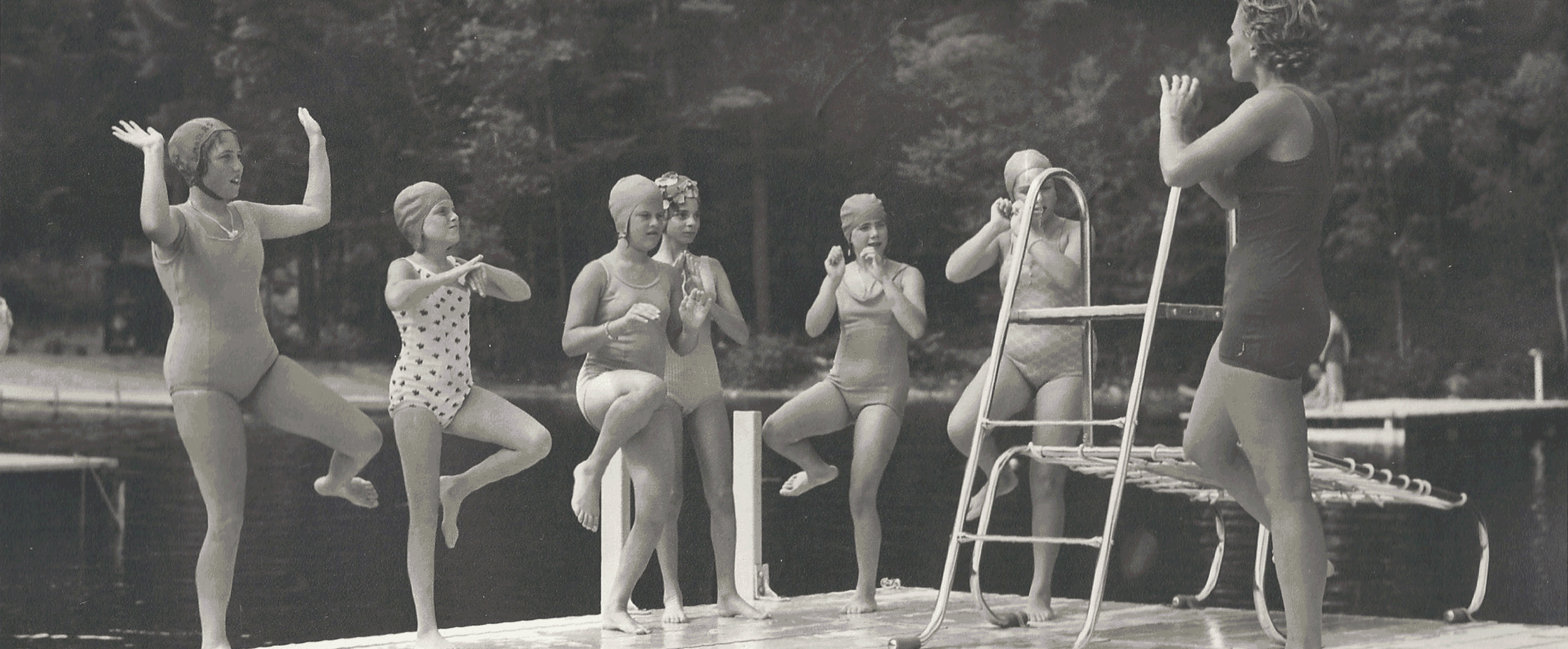
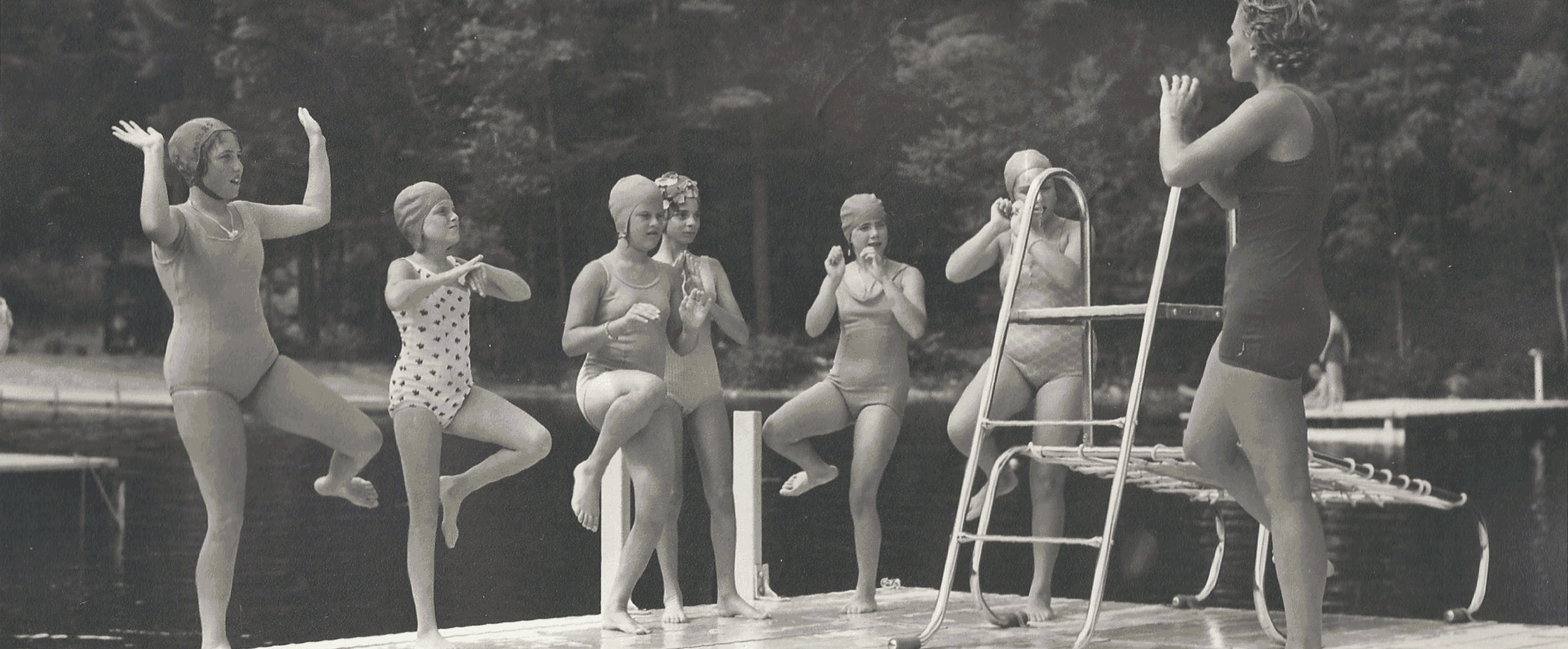


When my friends and I went to the 100th reunion of Camp Walden in late July, we stopped at the camp “museum”—a hut festooned with memorabilia, photographs, letters, albums, notebooks, schedules, and recipes going back decades. Not far from the entranceway, we paused in one of those disorienting moments that happens at such events: There was a 1961 photograph of us—me and the woman I was standing next to, and the rest of the ragtag band from our long ago Bunk 4: nine 11-year-old Jewish girls in a half-docked canoe, two bashful, non-Jewish counselors standing in the background. The image showed us in starchy white shirts and Bermudas, balancing in the hull of a wooden boat as calm water was beginning to pick up into small waves.
When one comes back as an adult to a place that held significant childhood meaning, it raises questions: Who was I? Who am I?
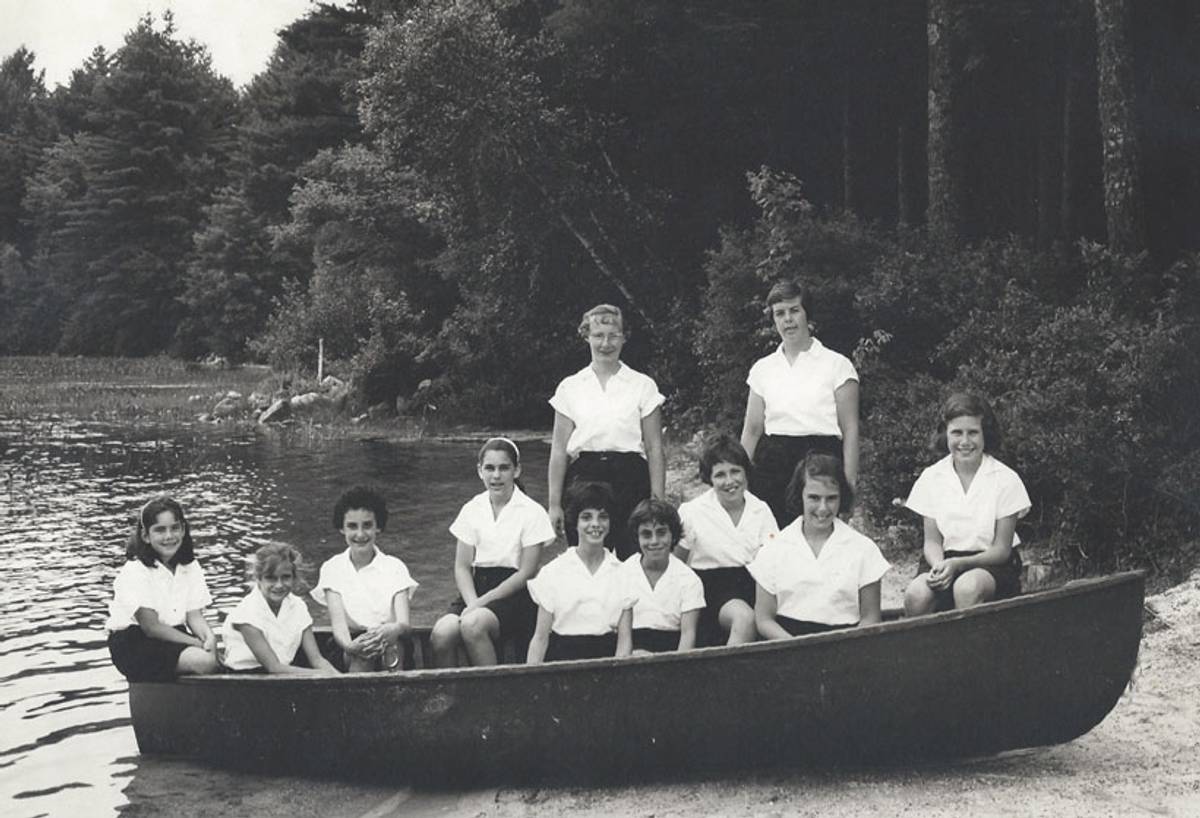
I spent six summers at Walden, eight weeks each. I returned to visit when I was in college and my sister was a camper, when my nieces were little girls and designated “future campers,” and then when my nieces were campers. And last month, I was one of 524 alumnae and counselors returning for the reunion, a group that ranged in age from girls in their late teens to 92-year-old Felice Klau Shea (who was elected Justice of the Supreme Court of the State of New York in 1982).
Walden was one of those “happy places” that become unconsciously part of an interior structure of comfort and security; it made me feel at home in myself to know it was still there. With each visit I was a slightly different person coming from a slightly different surrounding world.
***
If you look at photographs of Walden’s founders, Blanche Hirsch and Clara Altschul, you see a family resemblance to Etta and Claribel Cone or Gertrude Stein, who were their Victorian contemporaries and came from the same milieu: German Jewish women born in the United States in the 1860s or 1870s, upright, buxom, portly in middle age, progressive, and secular. The mother of one of my friends, who began at Walden in 1931 at the age of 12, described Miss Hirsch and Miss Altschul (they were always referred to this way) as “two ‘old maids’… but they were truly interested in education and girls.” Miss Hirsch, who had majored in mathematics, was a suffragette. She went to Italy to meet Maria Montessori and to Paris to meet Gertrude Stein, and she was a friend and colleague of the behavioral psychologist Edward Thorndike, who taught at Teacher’s College. Miss Altschul was interested in art and aesthetics. She was a teacher at the Alcuin School, which stressed “simplicity of life, indirect moral teaching, interpretative dancing, and art as a means of self expression.” Miss Hirsch was Alcuin’s headmistress.
The women were partners in every sense. When they purchased 45 acres and a mile of lake frontage in Denmark, Maine, the document for incorporation had both their signatures (as well the signature of Fred Herz, Blanche’s brother-in-law). Like many of the pioneers of American camping, they had the idea of introducing young people to the simplicity of nature. The Great War had begun, and its cruelties must have been in the back of their minds. When they named the camp Walden, they hoped “to remove their campers from the pressures and tensions of civilization,” as was noted in the 50th yearbook, Splash, and again in the 100th.
If Miss Hirsch and Miss Altschul were transcendentalists, they were also committed to Ethical Culture, and it turns out, so were the families of many of the first Waldenites who also attended such schools as Alcuin, Ethical (which is now Fieldston), Horace Mann, or Birch Wathen. The New York Society for Ethical Culture was started by Felix Adler, the son of the rabbi of New York’s Temple Emanu-El in 1877, and it combined elements of Reform Judaism, Emersonian ideas about the sacredness of the individual, and Kant’s doctrine of moral freedom. Sometimes summarized as “Deed Before Creed,” it was particularly appealing to Jews who had experienced religious discrimination.
The underpinnings of Ethical Culture and the belief system established by Miss Hirsch and Miss Altschul were still in place when I was at Walden in the 1960s. At least four of the parents of my bunkmates had gone to Ethical, but it wasn’t anything we thought to talk about. We knew almost all the campers were Jewish—secular or Reform—and almost all the counselors were Protestant or Catholic. It was deeply ingrained for our camp director Miss Herz to feel that religion was divisive (and so was politics, which is why the ceremony of raising the flag was stopped at the time of the Vietnam War). It was her responsibility to be in charge of a camp of close to 150 girls as well as a large staff whom she was mentoring. The grace we sang to the melody of “White Coral Bells” was universalist, and Friday fish was customary everywhere.
Perhaps the place where Miss Herz’s upbringing in Ethical Culture shone through the clearest was during Sunday morning discussions when we sat on the floor of the recreation porch and she’d open a topic in Socratic fashion, raising her question, giving campers a chance to explore their ideas, and then adding her own thoughts. Here are some of her observations collected by a counselor who was there for many years—you get a sense of her secular and unsentimental directness: On self-awareness: “Who you are today is important. Not what you were yesterday or will be tomorrow.” On the environment: “The environment is a big thing. The land we live in isn’t going to be such a great place unless we are conscious of it.” And on Watergate (her husband was in the Nixon Administration): “It doesn’t matter who you are, whether you hold an office or a position or not. If the bottom is rotten so will be the top … that’s how you get a Watergate.”
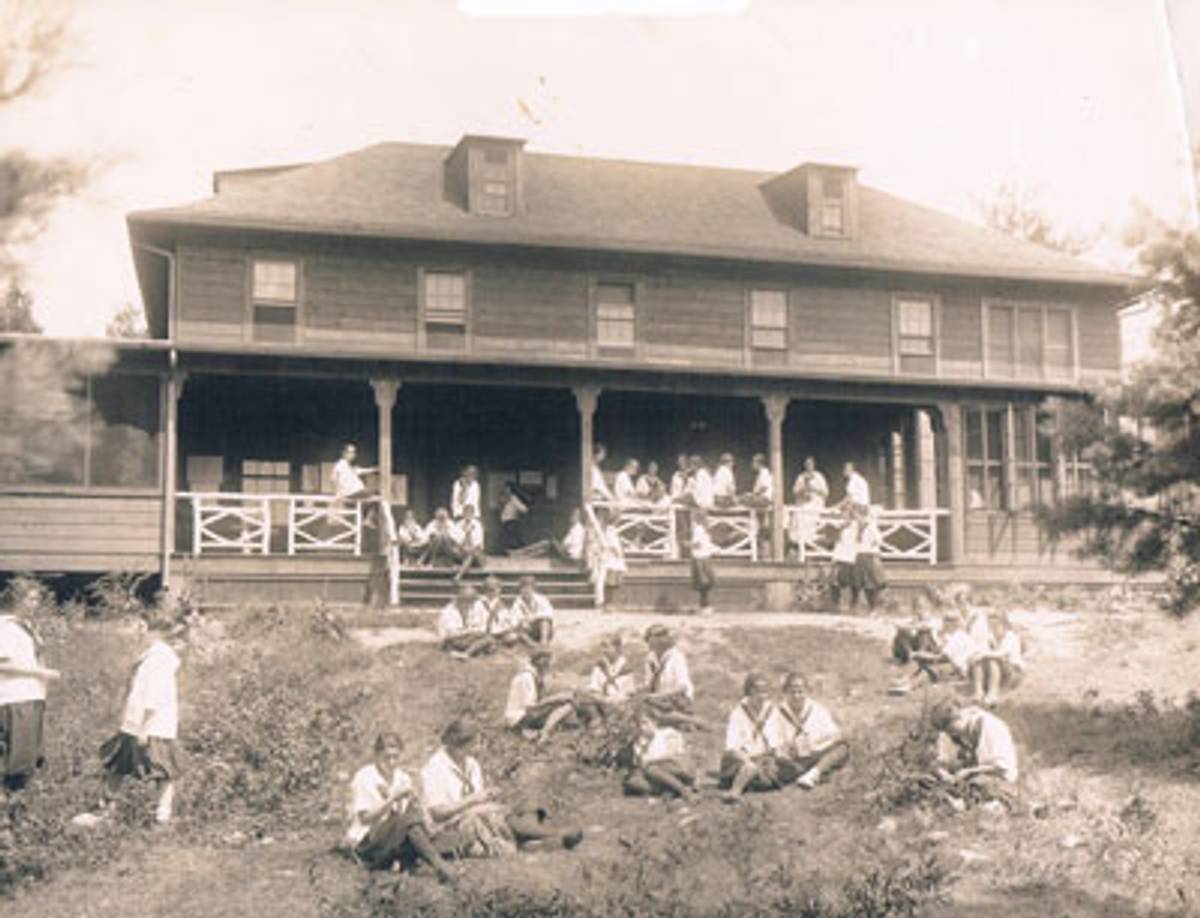
How was it that a shy bookworm like me, reader of Little Women, My Ántonia, and the Diary of Anne Frank (and who had not heard of Archie or Veronica and never read Little Lulu), enthusiast of jacks and Spit, tetherball and Nok Hockey, kept coming back to this place for “land and water sports, wood lore, and arts and crafts”? Partly it was the beauty of the surroundings. On the mountain trips, even at the summit of Mount Pleasant, our first hike, I remember thinking the panoramas looked like the glittering cliffs and valleys in the Heidi books. Some of the early campers—Ruth Krauss and Muriel Rukeyser, most famously—had become authors, and I was charmed by their adaptations of popular hits and Broadway tunes, the lyrics they had written and we still sang (“Of thee I sing, Walden,/ Summers here mean everything, Walden!”). I loved being part of a chain of tradition. Wearing old-fashioned orange ties for bunk shows and decorating birthday chairs with ferns linked us to those girls from the 1920s with their sailor collars and pleated brown bloomers. Since it was a place where daughters followed mothers, sisters followed sisters, and cousins followed cousins, Walden was a mosaic of families, and I found it easier to make friends because of the intimacy of the community.
Walden had an intricate honor code with ethical and intellectual components that fascinated me. When Miss Herz was interviewed for the 90th reunion in 2005 (the year before she died), she explained its beginnings: It was started, she said, when co-founder Blanche Hirsch, her aunt, was warned by other camp directors that she was going to have to open every package that was mailed, keeping watch on the campers at all times, “And Aunt Blanche said, ‘If I had to run a camp like that I wouldn’t want to run it. So, she installed honor system in the camp the day she opened it.’” The honor system, as I understood it, was two-tiered. There were the general precepts: respect, trust, consideration, cooperation, and honesty. Miss Herz recalled her aunt’s integrity with fondness: “Honesty was like a religion to Blanche. She believed in being honest at all costs.”
In my time, the specifics of honor system were the following: You had to have your feet on the Main House steps before the morning whistle for color guard, you couldn’t say even one word after taps, you had to hand over all food that came in packages (I think my father once sent a salami), and for the older girls, there was the additional prohibition: Never to smoke cigarettes, except in the Campers House. Whenever you broke the rules you had to report yourself to the Council President, and after a number of misdeeds you were assigned a job like removing gum from under the meeting hall benches.
On top of that, there was the conundrum of sportsmanship. At the beginning of each summer we were assigned to either the Brown or the Tan team, and we were supposed to play our hardest, to put our hearts into each game. Paradoxically, we were told that the happiest outcome at the end of each summer would be a perfect tie, as our unity song put it: “Take the spirit in command, show them that you’ll lend a hand,/ There’s no difference now between the browns and tans.” The goal was to be competitive only within ourselves, not against others, which would be divisive.
***
“Where did we get this value system?” I asked my friends at the July reunion, over a few glasses of wine. “Is it because it was a Jewish camp?”
“That had nothing to do with it,” someone said. “Our parents sent us there to get out of the city, to get fresh air. Sure, it was owned by Jews and had mainly Jewish clientele, but it had nothing to do with Judaism.”
“We had no idea we were at a Jewish camp,” said someone else.
And she was right; there was never a word. When I think back, we had a better chance of hearing Miss Herz say something about sex (as I recall, she did once, after a few of us made a list of sexual and scatological terms and she called us into her cabin to talk about the meaning of everything we had written down) than about religion.
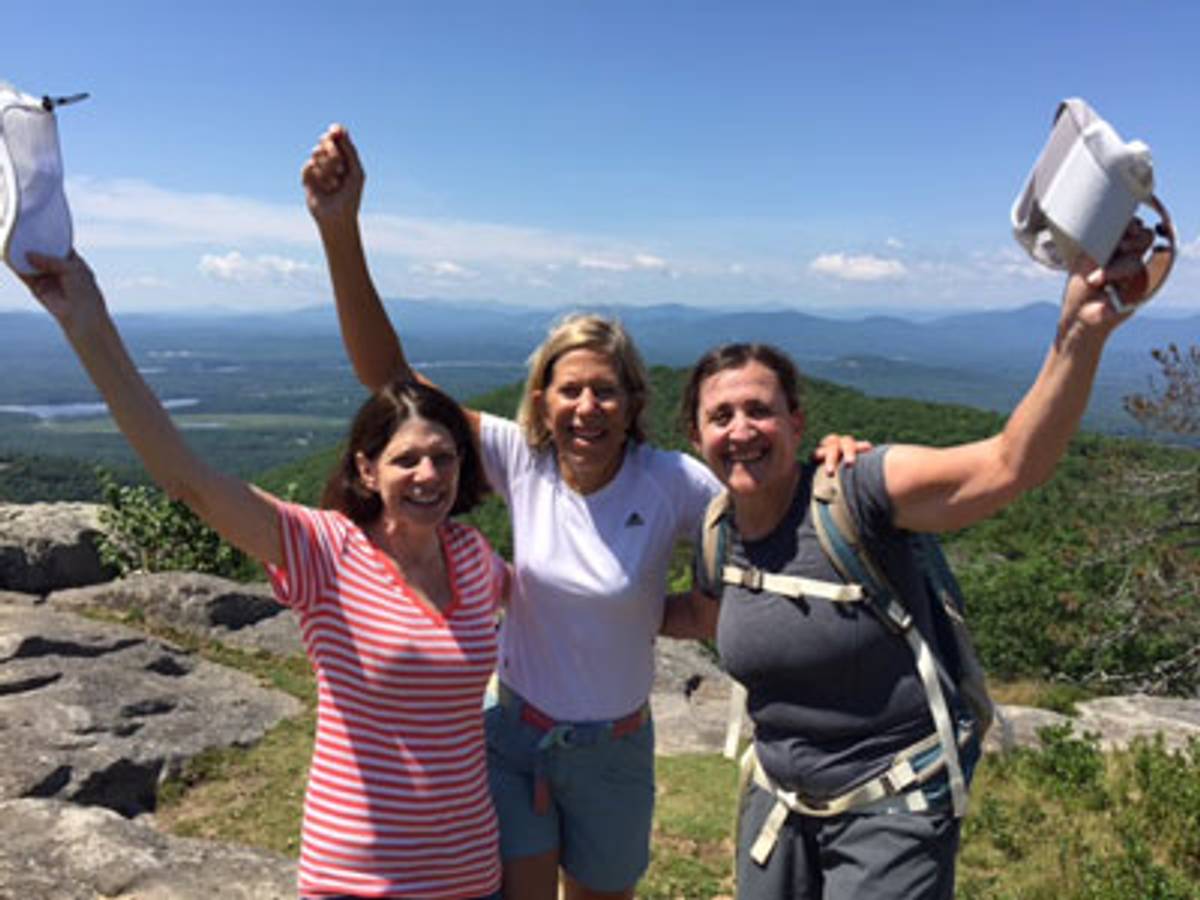
The reunion lasted two and a half days, the right amount of time to retrace footsteps and catch up with our cohort. I kept looking at faces as if I were seeing two layers, the one that had been full of expectation and not quite formed and the one that was imprinted with what happens in life. Using an unscientific sampling, I would say there was a significant amount of divorce and intermarriage among our peers, but that had already begun in our parents’ time. It turns out that some of our friends (or their daughters) are gay, some are widowed, some have disabilities, some have children with illnesses or children who tragically died. There has been more than a fair share of breast cancer. In general, I don’t think we are as well-off as our parents, many of whom had prosperous family businesses that were sold a while back.
A lot of us have been surprised by how affiliated we’ve become as Jews (the full gamut from running Jewish film festivals, teaching at spiritual retreats, or working with Jewish philanthropies to one of my friends who has two daughters who are rabbis). Interestingly, while our brothers didn’t have bar mitzvahs, often our daughters and nieces had bat mitzvahs. I was told that the annual contribution to Main Idea (the camp for disadvantaged girls that was founded at Walden in 1969) correlates to who’s coming up for bat mitzvahs during the current year.
“But Walden is non-religious, just like we’re non-competitive” a recent alum told me. Perhaps it’s always been a camp for (mostly) Jews, but not a Jewish camp? I thought with relief about one of the very few non-Jewish women who had gone there, a friend from my camp years 50 years ago, who said, “Never once did I feel out of place, ever.” Plus ca change, plus c’est la meme chose. Still, more than a few of us commented on a new song written by current campers: It was set to the tune of Dayenu, something that couldn’t have happened 50 or 100 years ago.
***
Like this article? Sign up for our Daily Digest to get Tablet Magazine’s new content in your inbox each morning.
Frances Brent’s most recent book is The Lost Cellos of Lev Aronson.